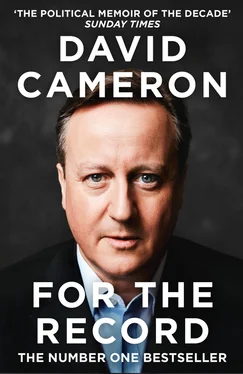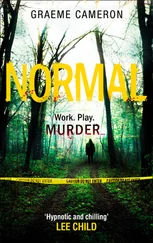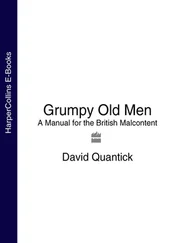The G7 participants in Bavaria (A.v.Stocki/ullstein bild/Getty Images)
Working on the contents of the red box (Tom Stoddart/Getty Images)
Holding the letter left by Liam Byrne reading ‘I’m afraid there is no money’ (Andrew Parsons)
Campaigning for the 2015 election (Dan Kitwood/Getty Images)
Writing the losing speech ahead of the 2015 general election (Andrew Parsons)
Visiting the Sikh festival of Vaisakhi in Gravesend (WENN Rights Ltd/Alamy)
Celebrating the winning count during the 2015 general election (Andrew Parsons)
Returning to Downing Street (Arron Hoare/MOD, Crown Copyright © 2015)
With Angela Merkel, Fredrik Reinfeldt and Mark Rutte in a boat in Harpsund (Jonathan Nackstrand/AFP/Getty Images)
With Bulgarian Prime Minister Boyko Borisov at the border iron fence (NurPhoto/Getty Images)
At Wembley Stadium with India’s Prime Minister Narendra Modi (Justin Tallis/WPA Pool/Getty Images)
Drinking a beer with China’s president Xi Jinping (Kirsty Wigglesworth/WPA Pool/Getty Images)
Meeting Donald Tusk and Jean-Claude Juncker (Yves Herman/AFP/Getty Images)
Inspecting the renegotiation documents with Tom Scholar and Ivan Rogers (Liz Sugg)
Addressing students and pro-EU ‘Vote Remain’ supporters (Christopher Furlong/Getty Images)
Watching the EU referendum results come in (Ramsay Jones)
Nancy, Elwen and Florence Cameron writing a letter for the incoming prime minister (Andrew Parsons)
Preparation for the final appearance at Prime Minister’s Questions (Andrew Parsons)
The last official visit as prime minister (Chris J Ratcliffe/WPA Pool/Getty Images)
With family before leaving Downing Street (Andrew Parsons)
Visit to Alzheimer’s UK (Edward Starr)
Every effort has been made to trace copyright holders and to obtain their permission for the use of copyright material. Where not explicitly referenced, the pictures are sourced from the author’s personal archive. The publisher apologises for any errors or omissions in the above list and would be grateful if notified of any corrections that should be incorporated in future editions of this book.
When the hardback edition of this book was published, there was only one issue at the top of the news agenda: Brexit. Britain’s still-unfulfilled decision to leave the European Union dominated conversations. It divided colleagues, friends, even families. It had already demanded the resignation of two successive prime ministers – me, and Theresa May – and it was, though we didn’t yet know it, about to lead to the landslide election of the next, Boris Johnson.
A year on, much has changed. Britain has left the EU, although an agreement on our future relationship with Europe has still not been reached. But that issue, like so many others, has largely been eclipsed by the deadly coronavirus that, tragically, has caused the deaths of thousands and changed everyday life for almost every person on earth.
One country’s withdrawal from a continental bloc and a pandemic engulfing every nation on the planet – the two issues might seem totally unconnected. Yet they do have something in common. They both involve the deep, tangled interdependence and interconnectedness of the modern world; one in which we trade and travel, communicate and collaborate, sharing not just the languages we speak but many of the laws we live by and the institutions that assist our cooperation. Politicians call this ‘globalisation’. And the challenges the phenomenon poses are shared by every politician in every country. That is the true common agenda.
In many ways, this book is the story of one politician in an increasingly globalised world. I had been a Member of Parliament for three months when the planes crashed into the World Trade Center, proving once again that Islamist extremism was not confined to the Islamic world. As leader of the UK Conservative Party, one of my earliests acts was to focus on climate change, the biggest, most global issue of our time. My first term as prime minister was dominated by the aftermath of the financial crash whose impact profoundly affected every developed economy.
The other issues on my desk in Downing Street were global too. They ranged from the Ebola epidemic in Africa and the Arab Spring in the Middle East to Russia’s invasion of Ukraine. The consequences of the global scourges of the early twenty-first century – terrorism, dictatorship, poverty, corruption – were then visited upon Europe, including Britain, in the form of the biggest migration crisis since the Second World War. Indeed, I established the cross-departmental National Security Council (NSC) for this very reason: foreign policy is domestic policy. You can’t disentangle the two. As I observe on page 533, what happens on the streets of Islamabad plays out on the streets of Bradford. Or, to bring that sentiment up to date, what’s sold in a Chinese animal market can bring the world to a standstill.
I remain a passionate globalist. The process of globalisation has helped to drive extraordinary progress for humankind, including lifting billions of people out of poverty. To be sure, a big, open, engaged world brings problems. But a big-world approach is the only way we can resolve them and continue to deliver prosperity and security for all in this still-young century.
Some might misinterpret this stance as a devotion to some warm notion of a global good over the cold, hard realities of our national interest. So it is important to clarify that one of the biggest reasons I believe in working with other nations is because it is right for our nation. I care about our relationship with other countries precisely because I care above all about our country.
I would take the argument further. As a Conservative, I believe in the nation state. In most cases, nations reflect a sense of identity, born out of a shared history. And because we feel we belong , we find it easier to share, to cooperate, to accept short-term sacrifices for long-term benefits. The nation state works . Global institutions should serve these states, not the other way round.
Of course, the arrival of the pandemic has thrown that outward, pro-globalist outlook into question. Is it still the right approach?
It has also made me read the contents of this book – and, consequently, my time in power – in a different light. So much of my premiership was dedicated to fixing the last global crisis, the 2008 financial crash. Did our remedy leave Britain better or worse prepared for this bigger shock? I went all-out pursuing strong relationships with both India and China. Was that misguided, or even counterproductive? How should we respond to the tide of populism and the demagogic leaders globalisation has brought with it? Will globalism cause the planet’s destruction or be its saviour? And, yes, there are questions about institutions: do we need to radically reform, or in some cases give up on, some of the big multilateral institutions – the United Nations, NATO, the World Health Organization … the European Union?
First, finance. A big theme of this book is the fiscal retrenchment known as austerity that was undertaken by the coalition government. Some have alleged that in the way we dealt with a crisis that pre-dated us we were storing up problems for crises that came after us. I would maintain the opposite is true.
Between 2010 and 2016 we reduced the UK’s perilously high budget deficit from a projected 11 per cent to 3 per cent of GDP (it was more or less eliminated by a Conservative government soon after). People mocked me for setting such store by this metric: the difference between what was coming into the country’s coffers and what was going out. The truth is, as I put it on page 180, ‘nothing matters more than your country having finances strong enough to be able to cope – because you don’t know whether the next crisis is twenty or five years away’. Of course, as we were still running annual deficits, the overall level of debt continued to rise, but it went up by far less than if we had done nothing. This meant that we would have more capacity to act when the next crisis hit. We did fix the roof when the sun was shining.
Читать дальше












